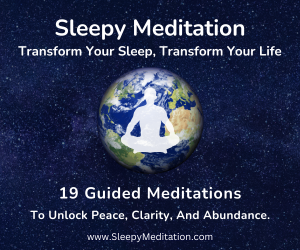Mastering Stress: The Power of Mindfulness-Based Stress Reduction (MBSR)
In today’s fast-paced world, stress has become a common phenomenon that affects millions of people worldwide. Whether it’s due to work pressure, personal relationships, or financial worries, stress can have a detrimental impact on our physical and mental well-being. However, there is a powerful tool that can help us manage and reduce stress effectively: Mindfulness-Based Stress Reduction (MBSR).
What is Mindfulness-Based Stress Reduction (MBSR)?
MBSR is a scientifically proven program developed by Dr. Jon Kabat-Zinn at the University of Massachusetts Medical Center in the 1970s. It combines mindfulness meditation and yoga practices to help individuals cultivate greater awareness of their thoughts, emotions, and bodily sensations. By learning to pay attention to the present moment without judgment, participants can develop a more compassionate and accepting attitude towards themselves and their experiences.
How Does MBSR Work?
The core principle of MBSR is to cultivate mindfulness, which is the ability to be fully present and engaged in the moment. By practicing mindfulness meditation and yoga regularly, participants can learn to observe their thoughts and feelings without getting caught up in them. This awareness allows them to respond to stressful situations with greater clarity and composure, rather than reacting impulsively out of fear or anxiety.
Benefits of MBSR
Numerous studies have shown that MBSR can have a wide range of benefits for both physical and mental health. Some of the key benefits include:
– Reduced stress and anxiety
– Improved sleep quality
– Enhanced focus and concentration
– Increased self-awareness and emotional regulation
– Greater resilience to adversity
How to Master Stress with MBSR
If you’re interested in learning how to master stress with MBSR, here are some practical tips to get started:
1. Find a qualified MBSR instructor: Look for a certified MBSR instructor who has undergone extensive training and has experience in teaching mindfulness practices.
2. Commit to a regular practice: Set aside time each day to practice mindfulness meditation and yoga. Even just 10-15 minutes a day can make a significant difference in your stress levels.
3. Practice self-compassion: Be gentle with yourself and treat yourself with kindness, especially when you’re feeling overwhelmed or stressed. Remember that it’s okay to take breaks and prioritize self-care.
4. Stay present: Whenever you feel stressed or anxious, try to bring your attention back to the present moment. Focus on your breath, body sensations, or surroundings to anchor yourself in the here and now.
5. Seek support: Don’t hesitate to reach out to friends, family, or mental health professionals if you’re struggling with stress. Remember that you don’t have to go through this alone.
Final Thoughts
Mastering stress with Mindfulness-Based Stress Reduction (MBSR) is a powerful way to cultivate resilience, self-awareness, and inner peace. By incorporating mindfulness practices into your daily routine, you can learn to navigate life’s challenges with greater ease and grace. Remember that it’s never too late to start practicing mindfulness – the benefits are endless, and the journey towards mastering stress is truly transformative.




































































